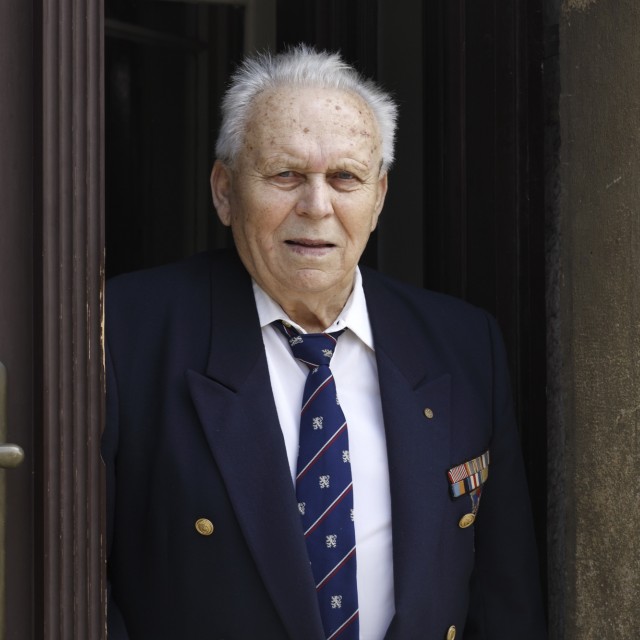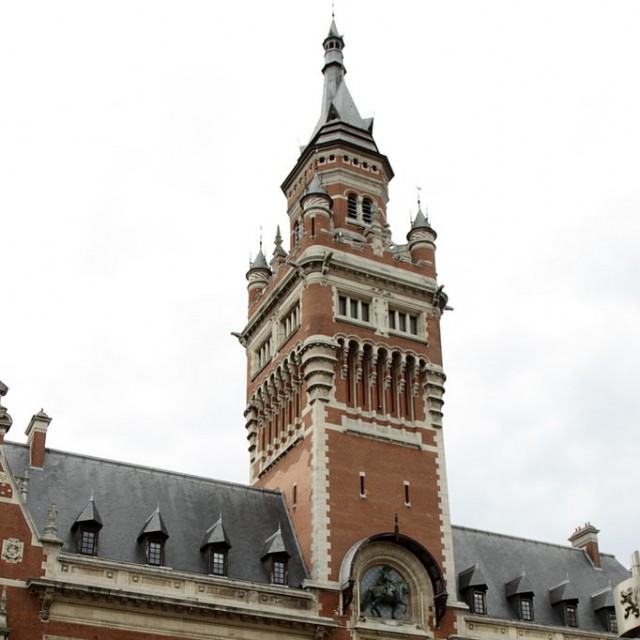I tried to see the enemy
The brigade of Jiří Horák arrived at Dunkirk in the beginning of October 1944 – a month after leaving England. This was due to a disagreement between the British and the Czechoslovak command. Jiří Horák served in a reconnaissance tank in the siege of the port: "the task of the tank was to accompany the infantry units and to support them. They gave us the targets; an infantryman would come for example and tell us about a machine gun nest. I located that nest on the map and gave an order over the phone to the sniper so that he knew what to shoot at." Horák wasn't only part of his tank crew, but he also served on the observation posts that were mostly set up on the roofs of abandoned buildings. "I came to the observation post in the evening and stayed all night there, the next day and the next night again. Then, in the morning somebody would come and relieve me. I would sit there, under the roof, and observe the situation through an opening between the tiles. You had to try to see the enemy. You knew that there was an infantry unit in front of you and you had to watch what was happening behind it." Mr. Horák passed on the information that he acquired through observation via telephone to an artillery battery. Mr. Horák also worked in a computing center which received aerial photographs every morning and prepared the firing operations. "Once I went on foot with a note taker, a radio operator and a telephone operator. When we were crossing one channel, we accidentally drowned the radio. We wanted to cross the channel on a raft and that boy, who was rather clumsy, fell from it and drowned the radio. When we came to the observation post, we found out that there was no telephone connection, so I had to go back along the wire and repair the line. When I was on my way back, a sniper started to shoot at me. I jumped into a trench and kept my head down. I heard the bullets hitting the ground around me. I poked out my helmet and he shot. I did it for a second time and he shot again ... I jumped up and quickly ran for cover behind a house." One of the boldest feats Mr. Horák did accomplish was the rescue of an encircled British unit with a severely wounded soldier. Mr. Horák perfectly knew the terrain and he led that unit out of the encirclement. For this accomplishment, he received – among other things – the medal of valor in the face of the enemy.
Hodnocení
Hodnotilo 0 lidí
Trasy
Příběh není součastí žádné trasy.
Komentáře
Žádné komentáře k příběhu.






